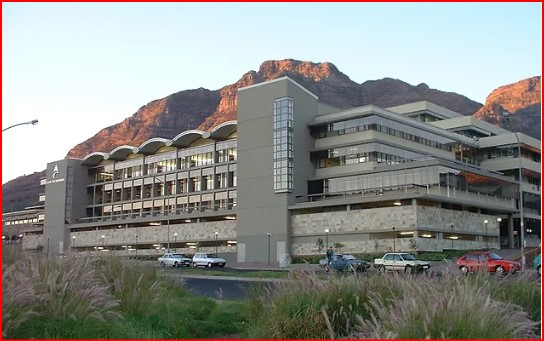
The Cape Peninsula University of Technology was established on 1 January 2005, when the Cape Technikon and Peninsula Technikon merged. This merger was part of a National transformation process that transformed the higher education in South Africa. Today, this Institution is the only University of Technology in the Western Cape and is the largest University in the Region. It boasts to have more than 30 000 students, several Campuses and service points and more than 70 programmes. The University has six faculties offering a wide range of accredited undergraduate and postgraduate courses in the fields of:
- Applied Sciences
- Business and Management Sciences
- Education
- Engineering & the Built Environment
- Informatics and Design
- Health and Wellness Sciences.
However, the institution has humble beginnings when the amalgamation in the Cape Technikon and Peninsula Technikon occured, which dates back to the early 1900’s:
The Cape Technikon- has its roots in the Cape Technical College, which was established in Longmarket Street in 1920. The establishment of the College followed more than ten Years of petitioning by the community for the consolidation of Technical courses that had been offered in various venues, in Cape Town.
In the late 1960’s this Institution had its status changed to a College for 'Advanced Technical Education' and was renamed the 'Cape College for Advanced Technical Education'. However, a decade later, the Technikons Act was promulgated and in 1976 the institution become known as the Cape Technikon and was allowed to offer, Degree Programmes.
The Peninsula Technikon- began 1962, as the Peninsula Technical College. This was established to cater for the steady growth in the number of coloured apprentices in a variety of trades. Classes were conducted in Cape Town until the relocation to a site in Bellville in 1967, which today is the Administrative Campus, of the Cape Peninsula University of Technology.
In the 1970’s the institution had its status changed to a College of Advanced Technical Education and was rebranded as the Peninsula Colleges for Advanced Technical Education. However, this name and status change was short-lived, in 1979 the College was legally established as the Peninsula Technikon.
Primarily offering education to; Coloured people during the apartheid era, the institution opened its doors to all races in 1987. The 1990’s also ushered in more changes for the institution, which was empowered to offer degree programmes. The year 1997 saw the restructuring of the institution’s academic programmes into the faculties of Engineering, Business and Science.
During the Apartheid era, all Educational Institutions were forced to serve a specific Race Group. The institution offered courses for White students. (However, in 1987 the most of the student population changed!) This was after the institution applied for and was granted permission to have the Government’s regulation lifted on the quota for Black students.
The 1990’s would usher in a new era for the Cape Technikon. This institution launched its new organisational structure, which featured six faculties, a new corporate identity as well as a new vision and Mission Statement. Vision and Mission Vision of CPUT is Africa’s leading Smart University of Technology,' globally renowned for innovation, with graduates that shape a better World for humanity:
- "Embracing a culture of Ethics and Integrity. Seeking Kindness and showing compassion (human heartedness) for the well-being of all our students, staff, stakeholders and the CPUT community, as expressed in 'ubuntu' as a way of living;
- Embracing Restoration as we deal with the legacy of our past and as we redress issues of equality, gender-based violence, and any form of discrimination;
- Being a testimony of Unity (ubunye), whilst embracing diversity (ukungafani) in all its forms by being honest, transparent, credible and respectful;
- Showing Passion and demonstrating enthusiasm, devotion, intensity, tenacity and total commitment to everything that we undertake as a university of technology; delivering uncompromising quality service, and always searching for better ways of doing things;
- Taking Accountability and accepting responsibility for all our actions and the actions that we commit to Being Technologically Astute and embrace and take ownership and experiment with the possibilities technology offers. In 2001 the Boland and Mowbray Education Colleges were incorporated into the Cape Technikon, forming the Faculty of Education at sites in Wellington and Mowbray.
The department utilises an Admission Point Score (APS) as selection criteria once your minimum admission requirements are satisfied. You also have to score a minimum of 36 with Mathematics and 38 with Mathematical Literacy on the APS. Online applications are free of charge. However, an application fee of R100 needs to be paid, if you applied manually.